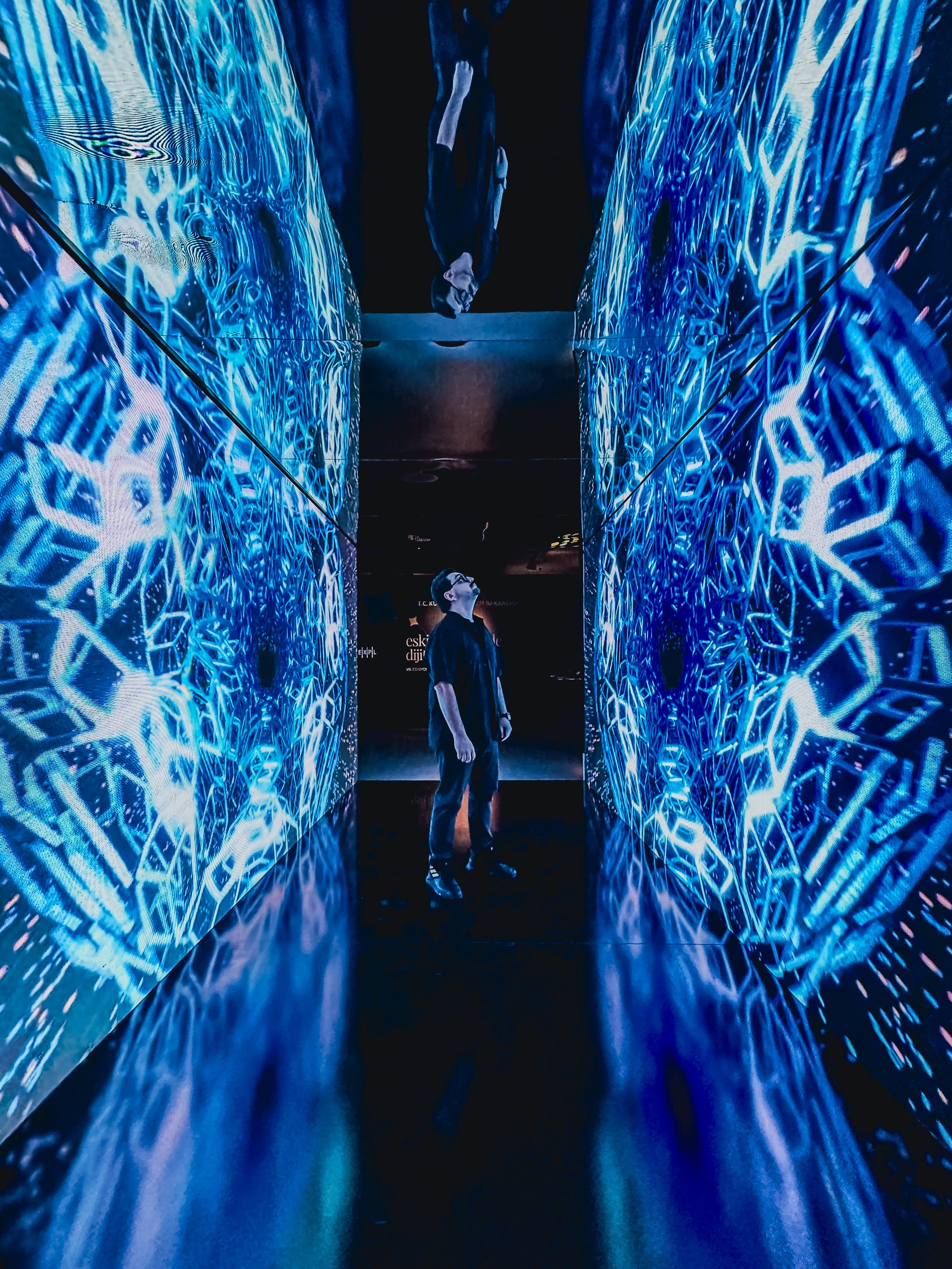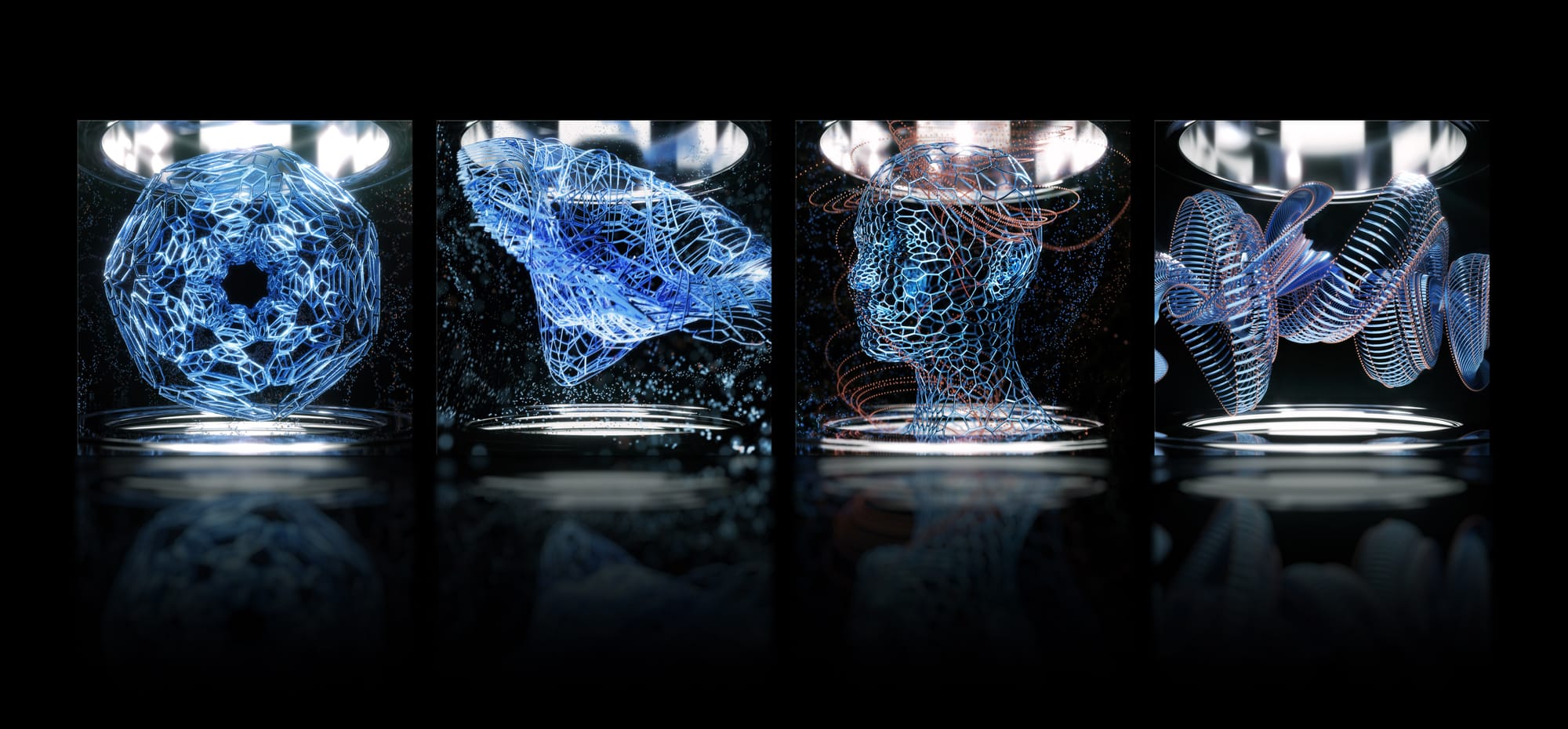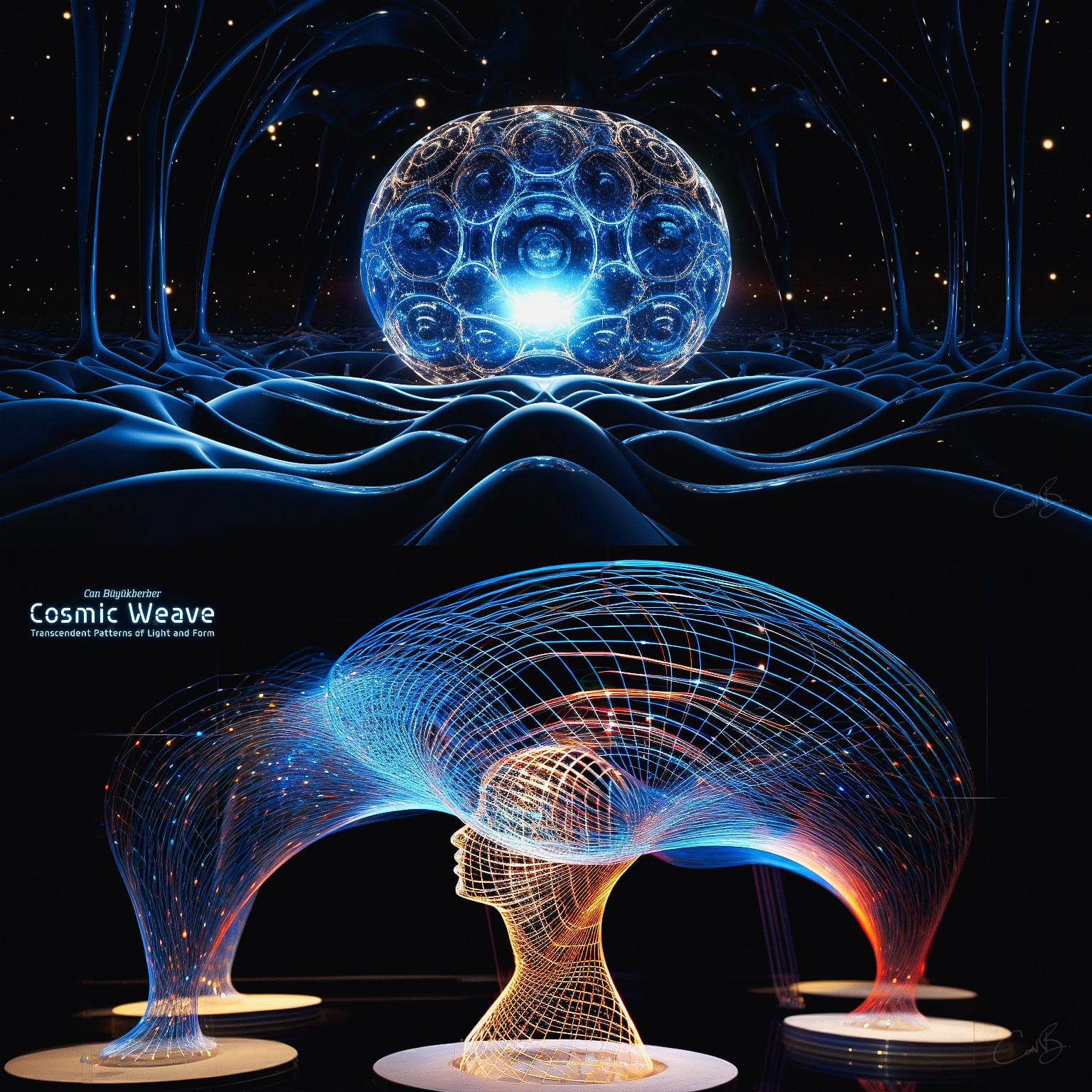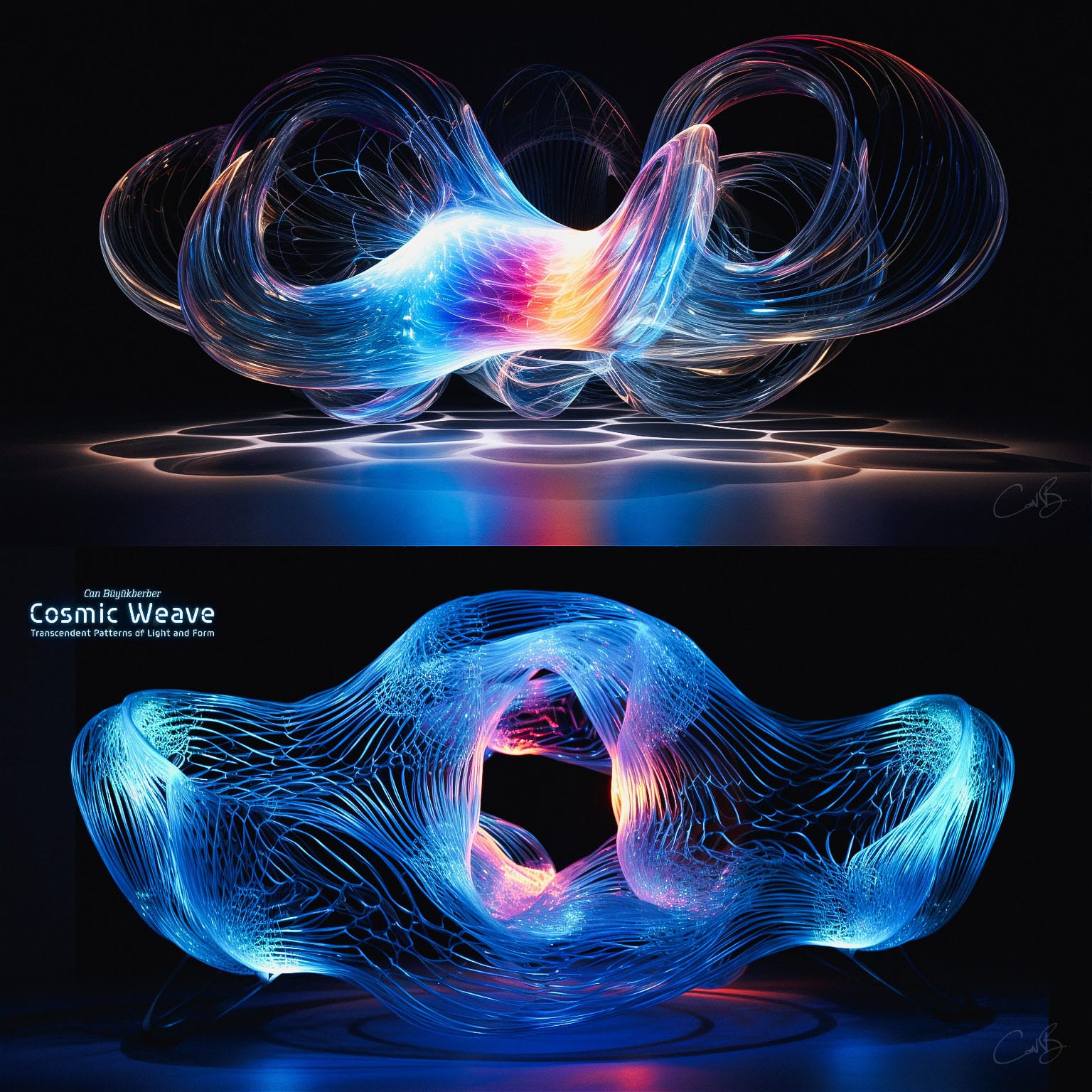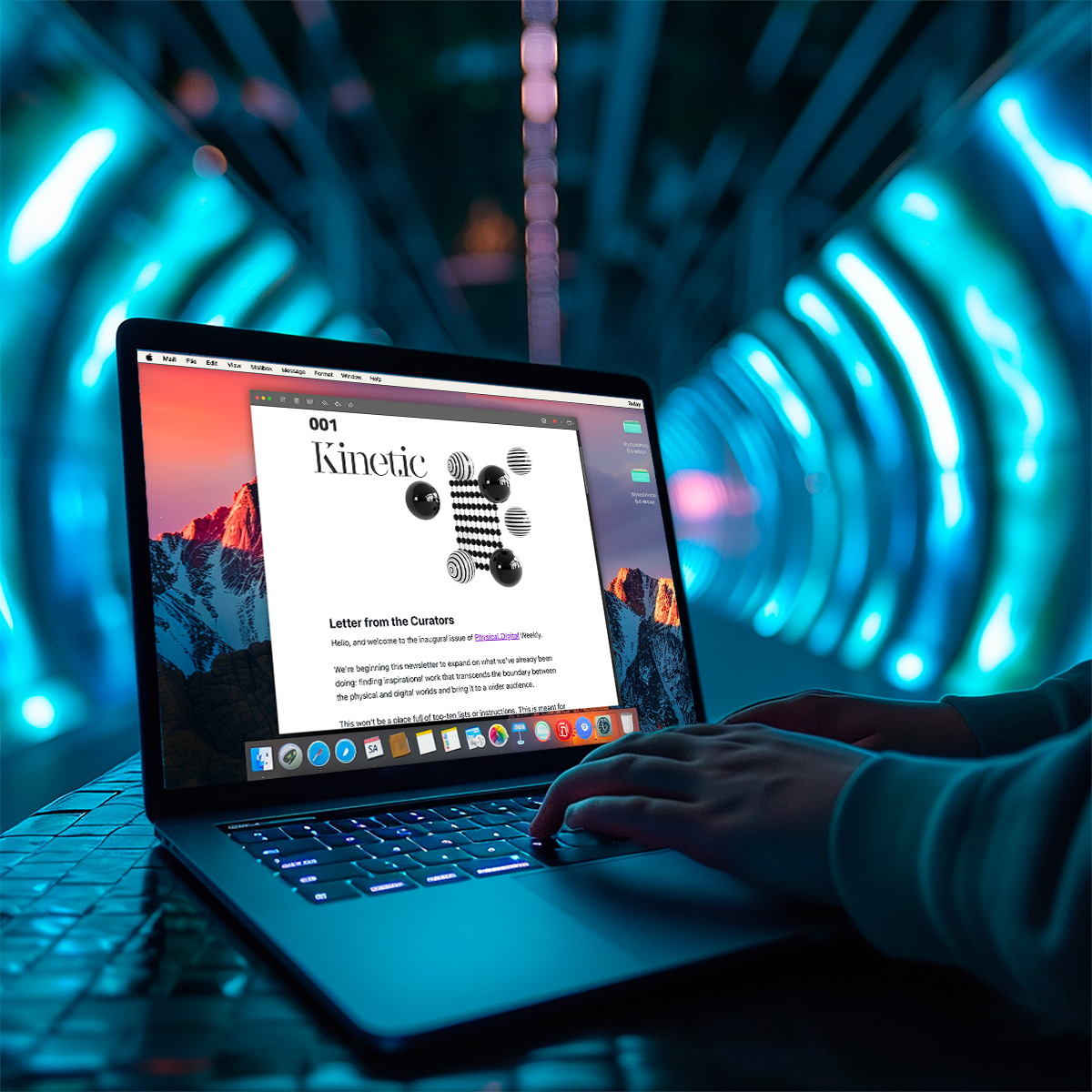Can Büyükberber
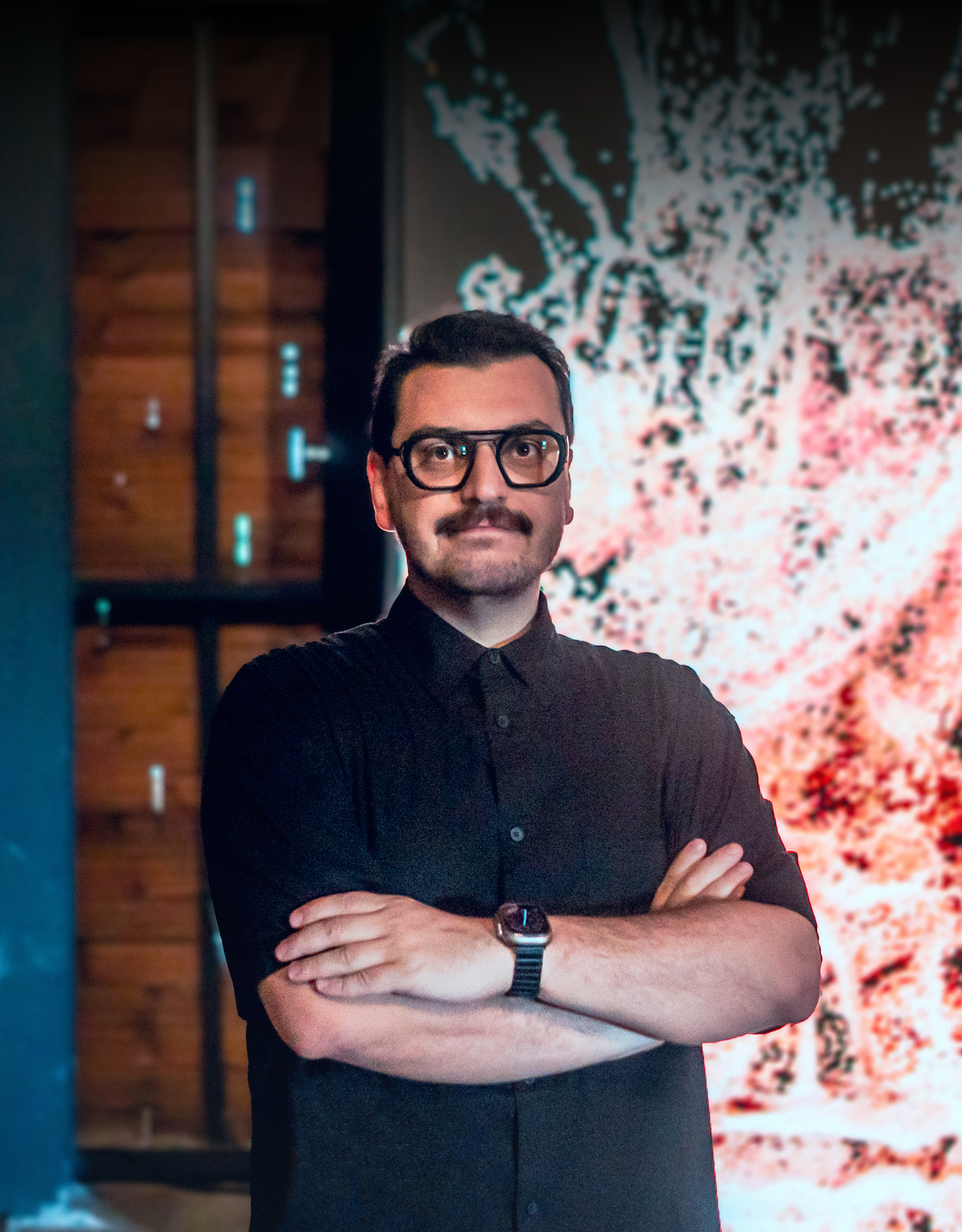
A conversation with
Can Büyükberber
Can is a visual artist and director who works on immersive audiovisual experiences that blur the boundaries between physical and digital spaces. He sat with us to discuss fractals, cinema, and magic.

Your fascination with fractals goes back to at least your 2010 installation Chairoma and it can be seen throughout nearly all of your pieces that you've done since then, even as your pieces have grown in complexity. Where does that fascination come from, and what are you exploring?
You begin to create something out of nothing. It feels like how the universe works, too.
There's definitely a strong emphasis on geometry in general. It's about trying to understand the universe, because that's where most of science and art comes from: numbers, geometry, music patterns. It’s trying to see the patterns in nature and understand the embedded intelligence in all things, and how things take their shape and evolve. And understand how similar patterns in how societies take shape, form social structures, and how they grow.
In all that, there is a repeating certain geometrical principles underneath everything. As a 3d artist, I tend to think in those terms, because you open your software, you look at nothing, and you begin to create something out of nothing. It feels like how the universe works, too. So, I feel like I I'm trying to emphasize those similar structures, and things happening in both the physical universe and in the digital space as well. Ultimately, that's a choice of aesthetics, but it also informs my conceptual framing and thinking about these concepts behind the scenes.
"Chairoma", 2010, is an audiovisual installation that delves into the potential of optical illusions, shadow manipulations, and distortions, all centered on the shadow of a stationary chair.
What does your design process look like for your multi-sensory experiences where there is a layer of artistry to create the physical element, and then another element to design the dynamic lighting, and even another element to design the audio? Is there an order to the creation or is it happening simultaneously?
It simultaneously happens, because as someone working with new media, there are always two things going on in my mind. One is immediate exploration. I'm always interested in new technologies, new software. The media exploration and experimentation inspire me. Two, I’m always trying to learn new things and think about life conceptually and philosophically. When those two things merge, a new art piece comes. It doesn't always happen because I'm not always excited about a new technology, and I'm not always particularly inspired by a concept. But when those two things align, I think it comes together beautifully and the two parts inform each other.
For instance, if you're doing something with virtual reality, it affects your approach to the concepts, and certain concepts work better in that particular medium. And then, it's a two way inspirational process between the concept and the technical realization of it.
"Primordial Particles" is an immersive art experience inspired by the profound beginnings of our universe. Over 13 billion years ago, all matter and energy, the very fabric of our existence, erupted from a singular, intensely dense point in an explosion of unparalleled magnitude. This explosion, known as the Big Bang, expanded not through existing space but by creating and stretching space itself.
Are you generally technology agnostic, and choosing the best technology for the concept, or are you leading with the technology choice and using that to inform your art?
There is an artistry in understanding your media and how to use it more effectively to present better experiences.
It happens over time. My approach, my workflow evolved over time, but I try to think mostly media-free first, because the good thing about being an artist in this environment is you can easily transfer your ideas from one technique to another. For instance, you can create a 3d sculpture and then use it in a AR experience, but you can also create a digital print with it, or use it in a projection mapping installation, or it can become a part of an LED installation.
I like having the flexibility when I'm approaching a concept, and I always think about the next step, and how I can present it differently. When I decide to show the piece in a certain media, it also makes me think that maybe I can use certain parts of it to make a different display or a different experience. The framing helps, and I think there is an artistry in understanding your media and how to use it more effectively to present better experiences. It’s just like musicians and how they work with their instruments.
Sometimes new tools, experiences, or even people completely change the direction of our work, what are these kinds of “keys” that opened doors for you in your career?
In my very early days as a kid and high school student, I was definitely inspired by movie effects. I was growing up in that era of movies like Lord of the Rings and Star Wars, and it was super inspiring to see all those developments in 3d, visual effects, and animation technologies like motion capture. That world was fast developing in that era and I was always watching those behind-the-scenes documentaries, trying to understand how people were creating those visual effects and animations.
That was a eureka moment for me. I understood that I don't have to design things for screens anymore. I can put this in a space.
That my first inspiration and my work is still heavily inspired by cinematic experience. The next step was during my Visual Communication Design undergrad studies, Media Arts. There I was introduced to exhibiting my work in a gallery or museum setting and understanding that I could use these visual effects techniques, but it doesn't have to serve a movie or a music video, or a commercial. It is an art form by itself and I can present it as a projection installation, or something like that.
In that time, projection mapping was hype, and all over light festivals and even projection mapping festivals all around Europe. That was a eureka moment for me. I understood that I don't have to design things for screens anymore. I can put this in a space. So it becomes a spatial experience. So that was a big conceptual shift. That was followed by creating more and more immersive work, first mapping a single architectural facade, then working with the whole space, and then domes and virtual reality. I just continued, media after media, trying to create more immersive work and more encapsulating experiences.
I'm actually enjoying technology’s natural progression. I don't want it to evolve faster, because everything is happening fast already. Very fast. We can foresee where it's heading and we're excited about the positive, but I don't want it to happen too fast because then society can’t adapt to all the changes that are being brought by these new technologies. I think we could have it at an even slower pace, so we can have more discussions around it before it gets too crazy.
Overall, I'm super happy about the lifestyle that technology has enabled for me, because I’m now able to live anywhere, work digitally, and send it over to different countries simultaneously. And now I don’t have to always go there, install it, go to meetings, all those things. I'm very happy about the digital nature of what I do, and I think if there wasn't this kind of technology, I wouldn't be able to have a lifestyle like that. Even the dialogue we're having right now, we're in different continents, we feel like we belong to the same culture, and we're easily having these conversations.
Integrating his digital sculptures with LED displays, augmented reality, and limited edition prints, "Metafold" allows attendees to experience the convergence of art and technology through different lenses.
What’s your relationship with collaboration? Do you favor collaborating with others are working independently?
The computerization of all the disciplines also creates a common dialogue and creates a platform to collaborate.
I’m trying to balance it. I’ve had great experiences, and I especially like it when I'm working with someone from a different background, from a different discipline. I had collaborative experiences with musicians, architects, neuroscientists, dancers, painters, many people from many different backgrounds. I can't even remember now because there's been so many. What I like about it is trying to find a language when you're collaborating, because everyone has a certain type of language in how they approach their work.
I’ve been trying to find those similarities of thinking. It helps you to look at your own discipline from a different perspective. I love that. Also, a lot of people are now using software, like musicians, architects, scientists, and sometimes they're even similar to art and design software. So, it becomes easier to transfer data from one to the other.
I think the computerization of all the disciplines also creates a common dialogue and creates a platform to collaborate. But I also really like working by myself too, because sometimes you want to control all aspects of your work. When you're working solo, even though it's a little isolating, it becomes a little easier to manage the work, because I’ve also had bad collaborative experiences as well. Everybody has a different role in a certain project, and everybody wants to believe they're the owner of it. So it creates this cliche conflict. Sometimes, I feel like maybe a project would be better with a sound designer., and sometimes maybe I just need to do it myself to avoid complications. So yeah, I try to balance it.
What else is inspiring you, outside of what people might expect?
As someone in this field, I'm actually not really following what other people in this space because I'm already friends with a lot of them. I know that what they've been up to for 10 years. I try to find inspiration in different fields. Cinema and music are big for me, of course.
But recently, comedians are becoming super prominent figures in our culture. All those podcasts, specials, and shows are a different breed of independent artists. I find inspiration in both the comedy of comedians, as well as how they manage their careers, because they create the content and present it themselves. It’s similar to being a solo artist.
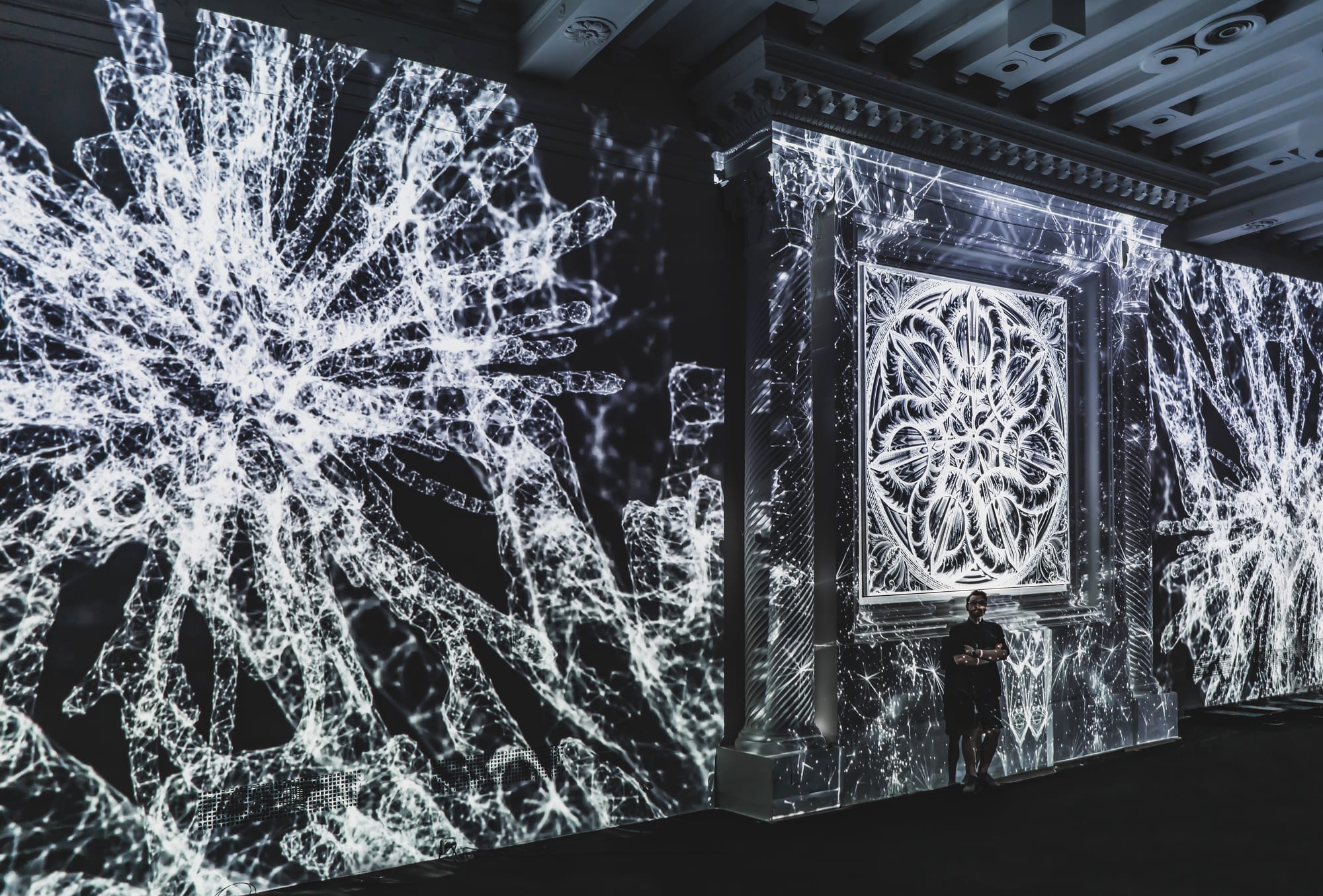
What do you see as the future of physical digital convergence?
It's kind of like the work of a magician to create that kind of magic, to make people question what they’re looking at.
I’m super excited about all the new developments with AI and spatial computing.
When generative AI technology merges with the more advanced spatial computers and headsets, and new displays and things like that for the next generation, the separation will be impossible because they're going to be living both in those worlds simultaneously.
It all comes to the idea of UI because it's about the interface and how we see reality. For our generation, there is now the separation of displays and UI isn't the actual reality. But as they converge more and more, it's going to be inseparable.
2024 is a big year for this convergence because Apple just released their own spatial computer. It's great that a big brand like this is betting on the future. When I'm experimenting more and more with these headsets, I can feel that all those boundaries that we were talking about blurring between physical and digital, it's already so blurred right now.
I like to make the physical world more like digital world. It's kind of like the work of a magician to create that kind of magic, to make people question what they’re looking at. Is this real? Is this not? I always enjoy playing with that sense.
In "Cosmic Weave", Can Buyukberber offers a refreshed interpretation of his pieces from the "Luminous" and "Multiverse" series. This collection of digital sculptures unravels the intricate tapestry of the universe, inviting viewers into a realm where the mysteries of higher-dimensional spaces, futurism, and the foundations of physics merge with the sensibilities of contemporary digital artistry.
